Your Rights Before the Board
Kansas State Board of Nursing
Formal Discipline Process
- Danger to the public health safety and welfare,
- The present moral fitness,
- Your consciousness of what you did wrong and the effect on profession,
- What you did and are doing for rehabilitation
- Nature and seriousness of misconduct,
- Current conduct,
- Time elapsed since prior discipline or criminal activity,
- Character, maturity and experience
- Present competence and skill.
These points are not all inclusive.
Appeal Process
Kansas Administrative Procedure Act
K.S.B.N.’s Scope of Authority
Informal Resolutions
What Happens If I Apply During An Investigation?
DISCLAIMER
The Kansas State Board of Nursing (“KSBN”) staff cannot and does not provide legal advice to members of the public. KSBN staff may provide assistance to the public by providing reference to the Kansas Nurse Practice Act. The Kansas Nurse Practice Act is available at https://ksbn.kansas.gov/npa/.This assistance should never be taken as legal advice, or as a complete reference to all relevant laws or regulations governing a particular situation. Any response given by KSBN staff is not binding on the Board and should not be taken as an official KSBN decision. If you believe you need legal advice, you should consult, at your own expense, a licensed attorney.
Determinations as to whether a nurse has violated the KNPA and whether disciplinary action is taken against a licensee, is a power granted to the Board. The Board does not make any determinations until after an investigation has been completed and evidence gathered has been presented to the Board. Therefore, agency staff are unable to provide an opinion as to whether there is a violation of the KNPA (see K.S.A. 65-1120, K.A.R. 60-3-110, and K.S.A. 65-1166 Art. III(c)(1)-(11).
A case investigation can take on average 6-9 months to complete and then present to the board. Any disciplinary action determined by the Board is then handled through the judicial system to allow for due process.
The goal of the KSBN is public protection. The mission of the KSBN is to assure safe and competent practice.

